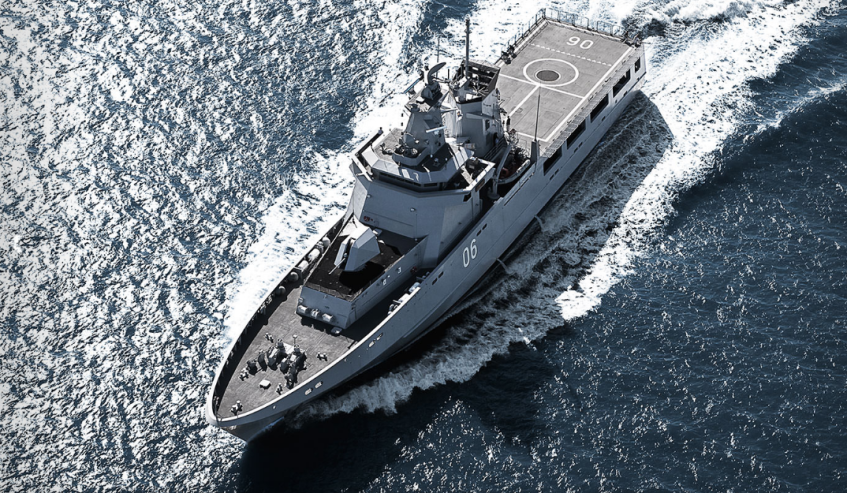As major contract winners are set to be determined by the National Security Committee, the unprecedented decision surrounding the Offshore Patrol Vessel (OPV) project has created a culture of uncertainty among defence industry.
Prior to Christmas, a controversy developed in the Senate relating to the Department of Defence’s refusal to provide NXT senator Rex Patrick with the date it introduced the idea of Austal being included in the build of a Lürssen designed Offshore Patrol Vessel, despite Lürssen entering into a joint venture with ASC and Civmec for its bid.
Senator Patrick wrote to the Defence Minister, Marise Payne, advising her that failing to be open and transparent with the party would have consequences in respect to the negotiation of legislation through the Senate.
"We either work together in the Senate, or we don't," indicated Senator Patrick. “Part of working with each other is about being transparent with each other.”
In response to Defence Connect questioning, Senator Patrick has confirmed that the minister has written back indicating that the initial consideration about including Austal was at a National Security Committee (NSC) of Cabinet discussion, although no date was provided with the Minister advancing a cabinet in confidence public interest immunity claim.
Defence Connect understands the NSC met Tuesday, 21 November last year and on the 22nd, Austal entered into a trading halt. The other bidders, Damen and Fassmer, were only informed they were unsuccessful on the Thursday evening, being told the Prime Minister would make an official announcement in Canberra on Friday, 24 November and they were not to be a part of it.
Under this time frame, the Cabinet in Confidence claim would come as no surprise given sources in the industry have labelled the decision as a band-aid political solution to include all three shipbuilding partners – ASC, Civmec and Austal – and diffuse any risk of political backlash from South Australia and Western Australia.
Industry insiders have slammed the government for requesting both a design and shipbuilding solution in the tender and then going on to throw out the joint venture solutions proposed by all three bidders, noting the decision has essentially resulted in Defence taking two years to select a design and has now seen a "forced marriage" between Lürssen, ASC, Civmec and Austal.
Nearly three months since the announcement from the government and no contract has been signed between Lürssen and Austal.
Others expressed concern that, despite Defence labelling industry as a fundamental input to capability, the government snubbing the shipbuilding solution from all three bidders has created a negative perception for international defence companies looking to do business in the Australian market.
Senator Patrick agrees with this analysis telling Defence Connect, "There is no doubt in my mind that this was a last minute decision."
"I find this sort of approach deeply concerning," said Senator Patrick. "The initial responses to the tender took several months. During that time tenderers had to work out partnering and shipbuilding strategies along with workshare, workforce and supply chain arrangements. They also had to come up with a cost. The Department have completely reconfigured the arrangements and have given the companies involved only two months to work through totally upended plans. In my view this can only add risk and increase cost, particularly noting there appears to be some forced marriages in there."
Senator Patrick is not the only one concerned by the approach of the government, with sources telling Defence Connect that, while it is positive the Royal Australian Navy is getting the vessel it desires, the true impact of political interference in Defence procurement decisions has been brought to light, casting doubt around the highly politicised LAND 400 Phase 2 and SEA 5000 projects.
"The fact that the change took place at cabinet indicates that the politics of local industry weighed strongly on the decision," said Senator Patrick. "I have no problem with political inputs to these sorts of projects, but they have to come early in the piece and be communicated to those involved in the tender."
"There’s a lesson in all this for the future frigate tenderers. Noting the continuing political pressure that is being applied on government, to ensure Austal and ASC end up with the build management, I’m hoping BAE Systems, Fincantieri, and Navantia are playing a smart game whereby build management by the Australian shipyards is given detailed consideration and presented in their tender responses as an option to government."









